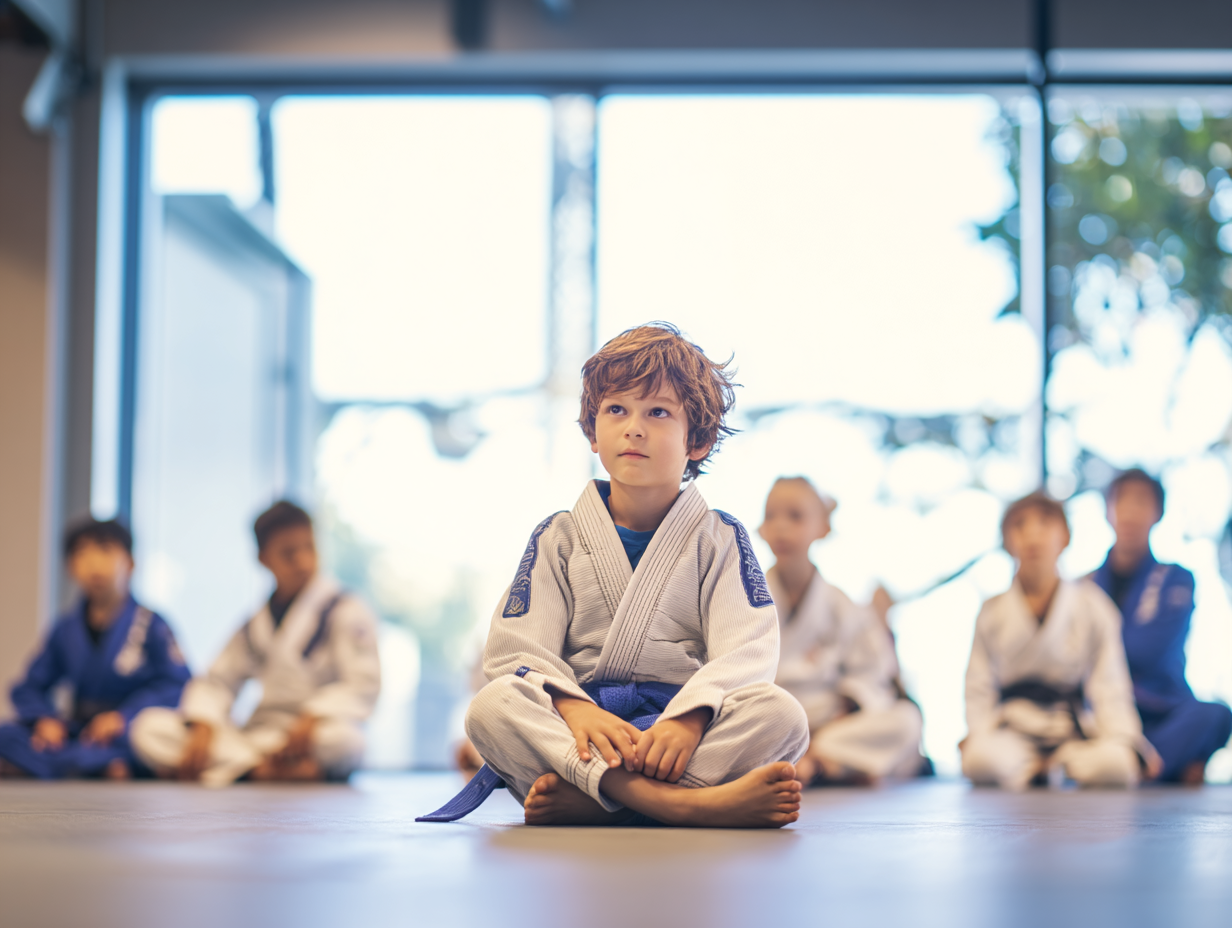Brazilian Jiu-Jitsu for Neurodiversity
Overview
The Brazilian Jiu-Jitsu for Neurodiversity programme is a fully developed, evidence-informed initiative set to launch in 2026. This innovative programme is specifically designed to support children and young people with diverse neurodevelopmental profiles, including Autism Spectrum Disorder (ASD), Attention Deficit Hyperactivity Disorder (ADHD), and Sensory Processing Disorder (SPD).
By leveraging the unique properties of Brazilian Jiu-Jitsu (BJJ)—a martial art emphasizing technique, pressure control, and strategy—we’ve created a structured environment that addresses key challenges while building on the strengths commonly found in neurodivergent individuals.
Challenge
Traditional physical education and sports programmes often fail to accommodate the specific needs of neurodivergent youth, creating barriers to participation and potentially reinforcing feelings of exclusion. Current therapeutic approaches sometimes lack engaging, age-appropriate activities that can simultaneously address multiple developmental domains.
The key challenges we aimed to address:
- Sensory regulation issues that can impede participation in conventional physical activities
- Social communication barriers that make team sports challenging
- Executive function difficulties that affect focus, planning, and emotional regulation
- Limited access to evidence-informed programmes specifically designed for neurodivergent populations
- The need for comprehensive support that extends beyond the training environment
Approach
My work on this project has centered on developing a robust evidence base that draws from multiple disciplines, including:
- Neurodevelopmental research on sensory processing and regulation
- Therapeutic movement studies focusing on proprioception and interoception
- Applied behavior analysis principles for skill acquisition and reinforcement
- Trauma-informed practices to ensure psychological safety
- Martial arts pedagogy adapted for diverse learning styles
The programme incorporates several key elements specifically tailored to neurodivergent needs:
Sensory-Aware Training Environment
- Low-stimulation training spaces with controlled lighting and sound
- Visual schedules and clear predictable routines
- Sensory break areas and adaptive equipment options
- Consistent class structures to build security through predictability
Therapeutically Informed Coaching
- Instructors receive specialist training in neurodiversity-affirming approaches
- Support from professionals with allied health backgrounds
- Adapted teaching methods that accommodate diverse communication styles
- Emphasis on mastery rather than competition
Individualized Development Pathways
- Customized progress tracking that integrates physical and developmental goals
- Regular assessment and adaptation of individual learning plans
- Celebration of diverse types of achievement beyond technical proficiency
- Evidence-based measurement tools for tracking outcomes
Implementation Plan
The programme is scheduled for full implementation in early 2026, following this timeline:
2025: Preparation Phase
- Instructor training and certification
- Facility preparation and sensory adaptation
- Formation of school and community partnerships
- Curriculum finalization and resource development
2026: Launch Phase
- First intake of students
- Implementation of baseline assessments
- Regular parent/carer consultation sessions
- Community awareness and education events
Late 2026: Evaluation Phase
- Data collection and outcome analysis
- Production of first impact report
- Refinement of programme elements based on findings
- Planning for potential expansion
Security Focus
Ensuring the safety and privacy of all participants is paramount. The programme incorporates:
- Comprehensive safeguarding protocols specific to neurodivergent youth
- Secure data collection and management systems for progress tracking
- Privacy-centered evaluation mechanisms
- Regular safety audits and risk assessments
- Trauma-informed practice throughout all aspects of delivery
Evidence Base
The programme draws on a growing body of interdisciplinary research supporting BJJ’s potential benefits for neurodivergent individuals:
- Studies showing the regulation effects of deep pressure touch, a core element of BJJ
- Research on the benefits of structured physical activity for executive function development
- Evidence from therapeutic martial arts programmes for various populations
- Preliminary findings from similar initiatives showing improvements in self-regulation, confidence, and social connection
While research specifically on BJJ for neurodivergent youth is still emerging, our comprehensive framework integrates established best practices from multiple relevant fields. The programme is designed to contribute to this growing evidence base through rigorous outcome evaluation.
Available Resources
For organisations, professionals, or families interested in learning more:
- Programme overview and theoretical framework (available upon request)
- Instructor training guidelines and requirements
- Facility adaptation recommendations
- Assessment and progress tracking tools
- Family support materials
This project represents an exciting convergence of evidence-based practice and innovative programme design, aligned with the needs and potential of neurodivergent individuals. For more information on partnerships or participation, please contact me directly.
